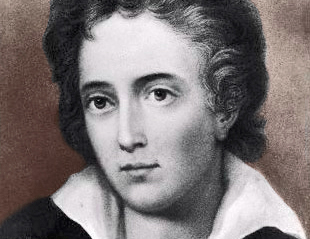
A few months after Shelley heard the news of John Keats’s death, he sent this letter to Joseph Severn along with his now-famous poetic tribute to Keats, “Adonais.” In the letter below, Shelley laments that, despite Keats’ “transcendent genius, [he] never was, nor ever will be, a popular poet.” Shelley himself died less than a year after writing this letter.
Pisa
Nov. 29th, 1821
Dear Sir,
I send you the elegy on poor Keats—and I wish it were better worth your acceptance. You will see, by the preface, that it was written before I could obtain any particular account of his last moments; all that I still know, was communicated to me by a friend who had derived his information from Colonel Finch; I have ventured to express, as I felt, the respect and admiration which your conduct towards him demands.
In spite of his transcendent genius, Keats never was, nor ever will be, a popular poet; and the total neglect and obscurity in which the astonishing remnants of his mind still lie, was hardly to be dissipated by a writer who, however he may differ from Keats in more important qualities, at least resembles him in that accidental one, a want of popularity.
I have little hope, therefore, that the poem I send you will excite any attention, nor do I feel assured that a critical notice of his writings would find a single reader. But for these considerations, it had been my intention to have collected the remnants of his compositions, and to have published them with a Life and Criticism. Has he left any poems or writings of whatsoever kind, and in whose possession are they? Perhaps you would oblige me by information on this point.
Many thanks for the picture you promise me: I shall consider it among the most sacred relics of the past. For my part, I little expected, when I last saw Keats at my friend Leigh Hunt’s, that I should survive him.
Should you ever pass through Pisa, I hope to have the pleasure of seeing you, and of cultivating an acquaintance into something pleasant, begun under such melancholy auspices.
Accept, my dear sir, the assurance of my highest esteem, and believe me,
Your most sincere and faithful servant,
Percy B. Shelley.
From Life, Letters, and Literary Remains, of John Keats. Vol. 2. Edited by Richard Monckton Milnes. London: Edward Moxon, 1848.
FURTHER READING
The Keats-Shelley Review, a journal dedicated to the lives of Keats and Shelley, has a collection of recorded songs and poems by both artists.
The full text of “Adonais” is available here at the Poetry Foundation.
Here is an article about the inadequate medical care Keats received in Rome before his death.


